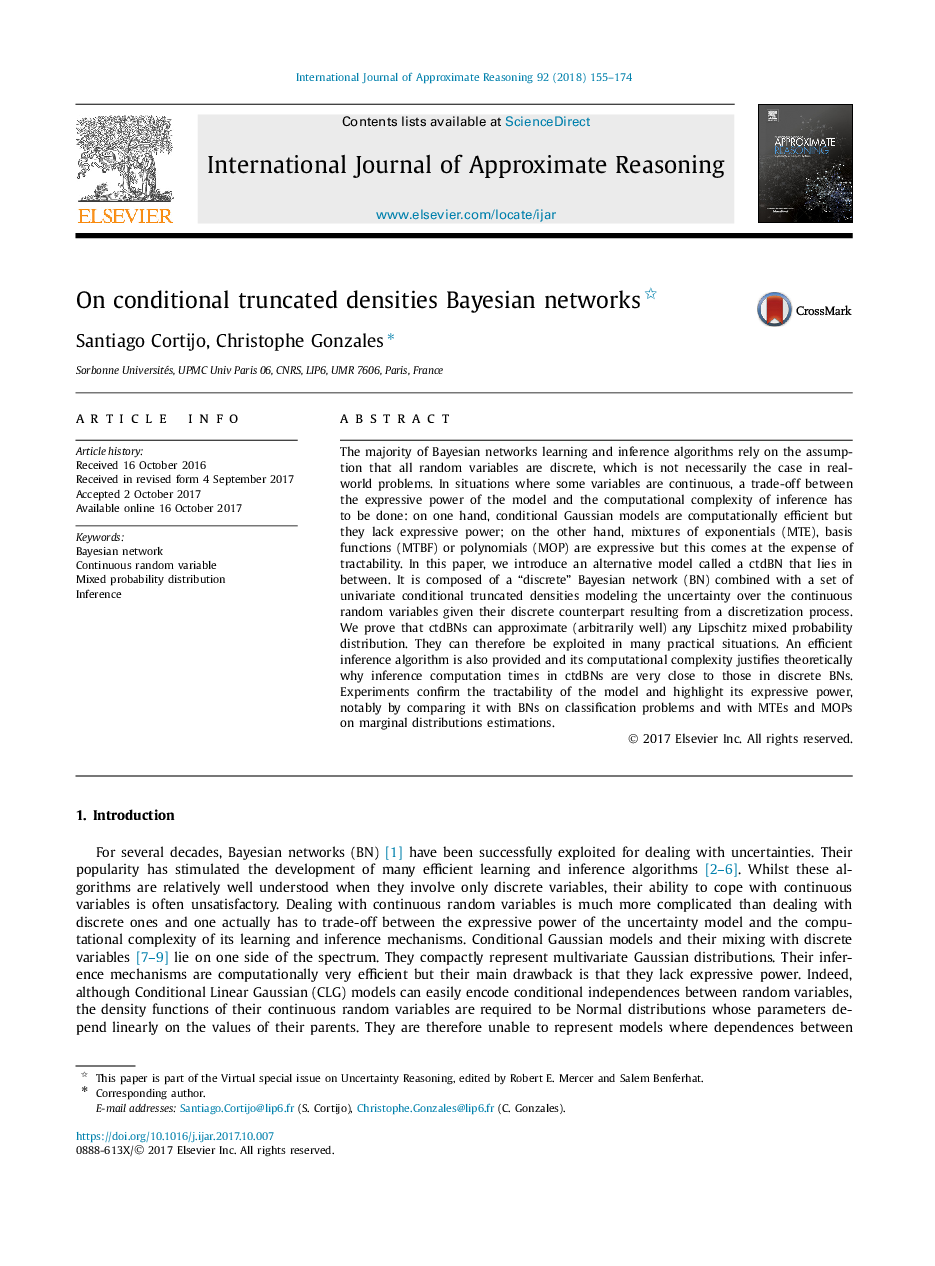| Article ID | Journal | Published Year | Pages | File Type |
|---|---|---|---|---|
| 6858859 | International Journal of Approximate Reasoning | 2018 | 20 Pages |
Abstract
The majority of Bayesian networks learning and inference algorithms rely on the assumption that all random variables are discrete, which is not necessarily the case in real-world problems. In situations where some variables are continuous, a trade-off between the expressive power of the model and the computational complexity of inference has to be done: on one hand, conditional Gaussian models are computationally efficient but they lack expressive power; on the other hand, mixtures of exponentials (MTE), basis functions (MTBF) or polynomials (MOP) are expressive but this comes at the expense of tractability. In this paper, we introduce an alternative model called a ctdBN that lies in between. It is composed of a “discrete” Bayesian network (BN) combined with a set of univariate conditional truncated densities modeling the uncertainty over the continuous random variables given their discrete counterpart resulting from a discretization process. We prove that ctdBNs can approximate (arbitrarily well) any Lipschitz mixed probability distribution. They can therefore be exploited in many practical situations. An efficient inference algorithm is also provided and its computational complexity justifies theoretically why inference computation times in ctdBNs are very close to those in discrete BNs. Experiments confirm the tractability of the model and highlight its expressive power, notably by comparing it with BNs on classification problems and with MTEs and MOPs on marginal distributions estimations.
Related Topics
Physical Sciences and Engineering
Computer Science
Artificial Intelligence
Authors
Santiago Cortijo, Christophe Gonzales,
